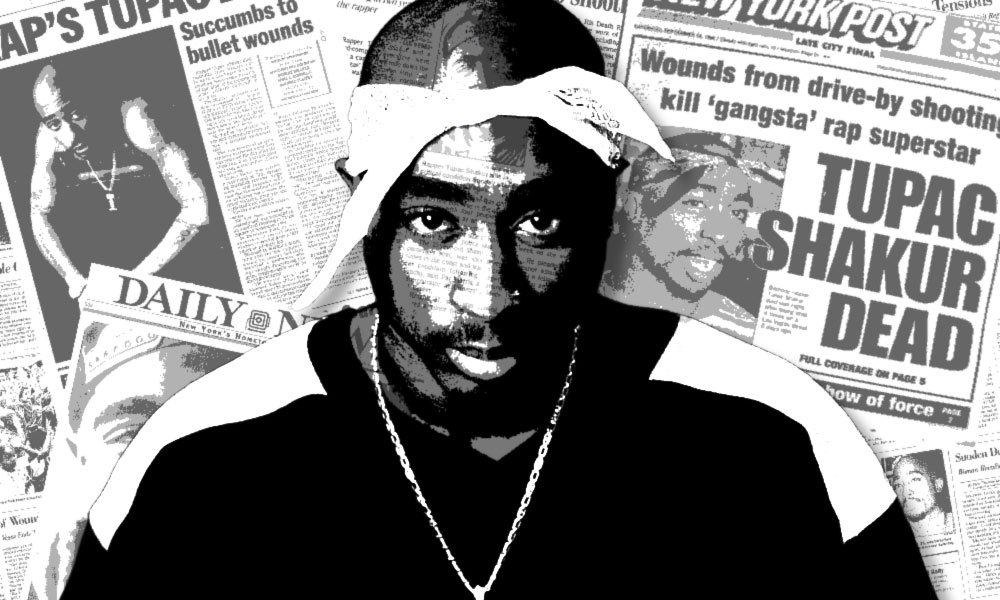The death of popular rapper and actor Tupac Shakur provides valuable lessons about the perils of failing to create a comprehensive estate plan. Despite being a multi-talented artist with a vast intellectual property portfolio, Shakur's estate planning shortcomings resulted in significant complications and financial disputes in the decades that followed his untimely demise in 1996. An arrest for his murder was finally announced in 2023.
One glaring lesson from Shakur's estate planning that resonates all these years later is the critical significance of having a legally valid and up-to-date last will and testament.
When Shakur was gunned down in Las Vegas while riding in car, he died intestate, meaning he did not leave behind a legally recognized document specifying how his assets should be distributed upon his death. As a result, his lack of planning led to protracted legal battles among potential heirs and complicated matters for his family and business associates alike.
In addition, Shakur's failure to establish a trust adds another dimension to the consequences of inadequate estate planning. A trust enables individuals to transfer their assets into a separate legal entity managed by a designated trustee for the benefit of specified beneficiaries.
By employing this powerful tool, one can ensure greater control over asset distribution while potentially minimizing tax liabilities. Had Shakur implemented such measures during his lifetime, it could have provided clarity and protected his intellectual property rights long after he was gone.
An important takeaway from Shakur's case is the significance of appointing a capable executor for one's estate plan. An executor acts as the personal representative responsible for executing the deceased person's wishes as outlined in their last will and testament.
Unfortunately, due to Shakur's lack of appropriate estate planning measures, multiple parties emerged claiming to be entitled to administer his estate — an issue that could have been avoided had he designated an executor himself. Examining Shakur's case is both a cautionary tale and an opportunity to learn valuable lessons about proper estate planning.
His failure to establish a legally recognized last will and testament, implement a trust and appoint an executor underscore the importance of taking proactive steps to protect one's assets. By avoiding the pitfalls that Shakur encountered, individuals can ensure their intellectual property rights are preserved, their assets are distributed according to their wishes and potential legal disputes among heirs are mitigated.
What were Shakur's estate planning mistakes?
Shakur left an indelible mark on the music industry and popular culture. However, his tragic death at the young age of 25 revealed significant estate planning mistakes that have had lasting repercussions.

As mentioned, Shakur’s failure to execute a valid will or have a trust in place to dictate the distribution of his assets upon his death directly led to numerous complications and disputes among his heirs.
In such cases, state law determines who inherits the deceased individual's assets based on rigid, predefined rules. In Shakur’s case, this resulted in a prolonged legal battle among potential heirs, including family members and former business associates. By failing to appoint an executor or personal representative for his estate, conflicts arose surrounding who had the authority to manage Shakur’s estate and make decisions regarding its administration.
Tupac neglected to protect his valuable intellectual property rights through proper estate planning measures. As an artist known for his lyrics and performances, he possessed a substantial amount of intellectual property that could generate revenue even after his death.
However, without a comprehensive plan outlining how these rights should be managed and monetized posthumously, disputes over ownership and royalties was an unfortunate result. Not adequately protecting his intellectual property rights deprived potential heirs and beneficiaries of ongoing revenue streams. It serves as a reminder for everyone, regardless of their fame or fortune, about the importance of proper estate planning to safeguard their legacy and protect their loved ones from unnecessary disputes and uncertainties.
Who took over Shakur’s estate?
Shakur’s mother, Afeni Shakur, took control of his estate following his death. Given that Shakur was unmarried and had no children, it was standard under the laws of intestate succession for his mother to inherit and manage his assets. Afeni, recognizing the cultural and financial value of Tupac's work, established Amaru Entertainment to manage and release Tupac's posthumous projects. Through this, she was responsible for albums, documentaries and other media that furthered Tupac's legacy.
Like many high-profile estate disputes, however, there were tensions among family members. Some of his extended family felt they should have a say or stake in the management and earnings of his posthumous works. These tensions occasionally made headlines, illustrating the complexities when large estates and family dynamics intersect.

Afeni Shakur created a trust that ensures a portion of the profits from her son’s estate goes to charity and benefits family members. This trust was her attempt to ensure his legacy benefits those he would have wanted to support, including close family and charitable causes.
But Afeni passed away in 2016, leading to another layer of complexity for her son’s estate. While Afeni did have a trust in place, more disputes arose over the control and management of the ongoing enterprises related to Shakur’s legacy.
How can I protect my intellectual property after my death?
Intellectual property, such as music, books, artwork and inventions, is a valuable asset that can continue to generate income even after the creator's death. However, failure to plan for the protection and management of intellectual property can lead to complications and disputes among surviving family members or other beneficiaries.
To ensure the preservation and effective management of your creative works after your demise, it is crucial to include provisions in your estate plan that address intellectual property rights. One of the most important steps in protecting intellectual property after death is clearly identifying and documenting all of your creative works.
This includes registering copyrights for any original music compositions, literary works or visual arts you have produced. By registering these copyrights with the appropriate authorities during your lifetime, you establish legal evidence of ownership.
Also, it is beneficial to keep detailed records of any patents or trademarks associated with your inventions or brand names. After establishing ownership rights over your intellectual property through proper documentation, you should designate a trusted individual or entity who will be responsible for managing and enforcing these rights upon your passing.
This can be done through mechanisms such as appointing an executor in your last will and testament or creating a trust specifically designed to hold and administer intellectual property assets. Selecting someone who has knowledge about intellectual property laws and can effectively navigate copyright infringement issues is crucial to ensuring the continued protection of these assets.

In addition to designating a responsible party for managing intellectual property rights after death, it is essential to provide clear instructions on how these assets should be handled. This may include specifying whether you want certain works to be licensed or sold for profit, donated to specific organizations or institutions upon your passing or kept within the family for future generations.
By including explicit directions regarding their disposition in your estate plan documents, you reduce the likelihood of confusion among potential heirs regarding their entitlements. Overall, protecting intellectual property after death requires proactive estate planning measures that go beyond traditional arrangements for financial assets.
By taking steps to document, designate and instruct the management of your intellectual property rights, you can ensure that your creative works continue to make an impact and generate income for generations to come. Consulting with legal professionals experienced in estate planning and intellectual property law is highly recommended to ensure your wishes are accurately reflected in your estate plan.
Conclusion
The tragic death of Tupac Shakur serves as a profound reminder of the importance of proper estate planning. Despite his immense talents and success, Shakur's estate was subject to numerous challenges and legal battles due to his lack of a comprehensive estate plan.
Through examining the mistakes made in his case, individuals can learn valuable lessons about protecting their intellectual property and ensuring their assets are distributed according to their wishes. One key takeaway from Shakur's estate planning mistakes is the critical need for a well-drafted last will and testament.
Without a valid will in place, an individual's assets may be subject to intestacy laws, which vary by jurisdiction. Applying these laws often leads to complex legal proceedings and may result in unintended consequences for heirs.
By working with experienced attorneys specializing in trust and estate planning, individuals can establish a solid foundation to protect their wealth and dictate how it should be distributed after their passing. Another lesson we can derive from Shakur's case is the significance of protecting one's intellectual property rights.
As an artist with a vast catalog of music, Shakur's intellectual property became incredibly valuable following his untimely demise. However, without clear instructions regarding its management and distribution in his estate plan, disputes arose between various parties claiming ownership rights.
By establishing trusts or other mechanisms specifically designed for preserving intellectual property rights, creators can ensure that their artistic legacy remains intact while benefiting those they intend to provide for. While Shakur's tragic death shed light on some grave estate planning mistakes, it also offers an opportunity for us to reflect on our own plans for the future.
By prioritizing proper documentation such as last wills and testaments and taking steps to safeguard our intellectual property through meticulous planning, we can ensure that our assets are managed effectively after our passing. With careful consideration and professional guidance throughout this process, we have the power to protect our loved ones from unnecessary legal battles and secure a lasting legacy for generations to come.



